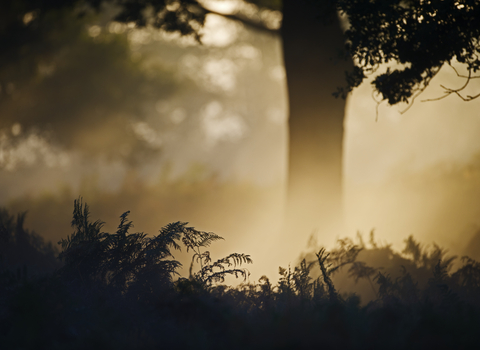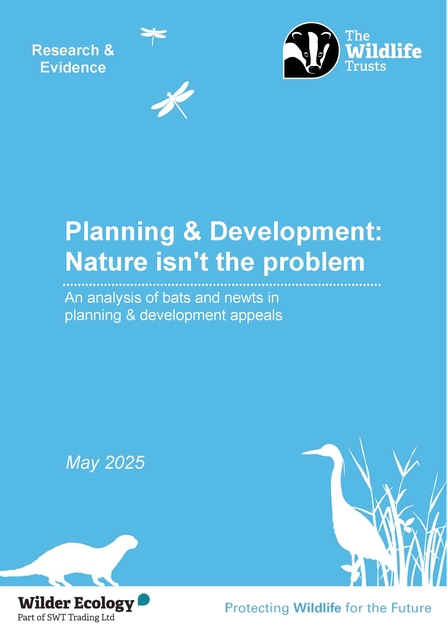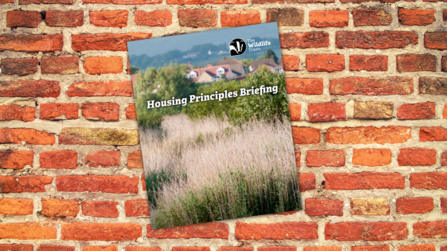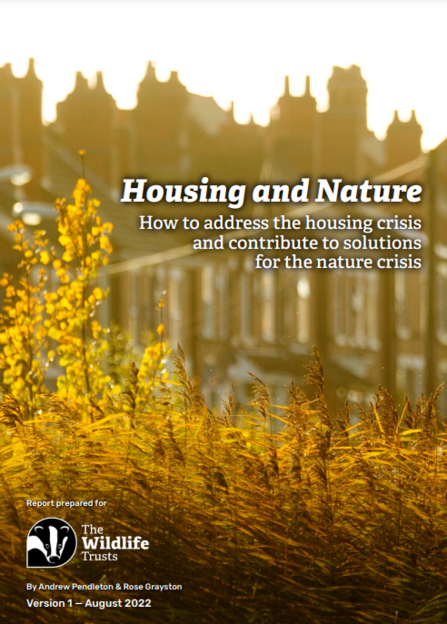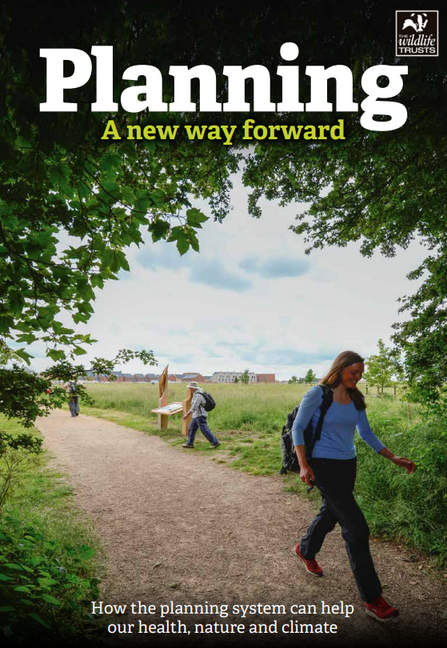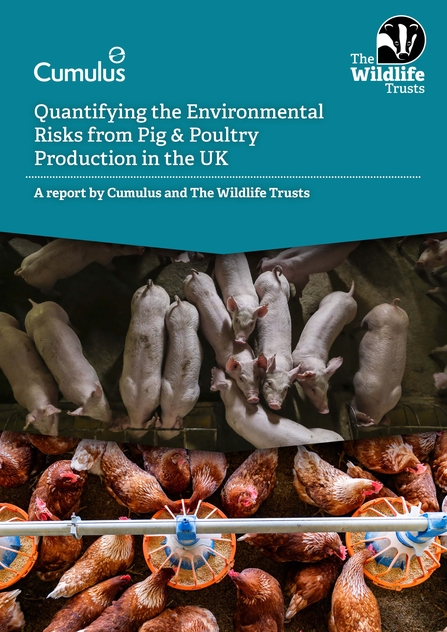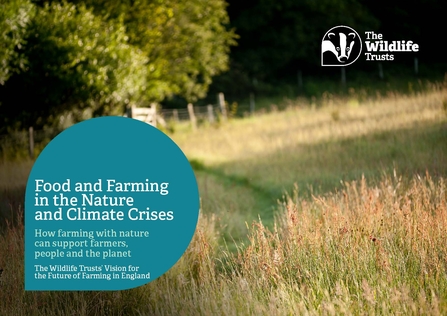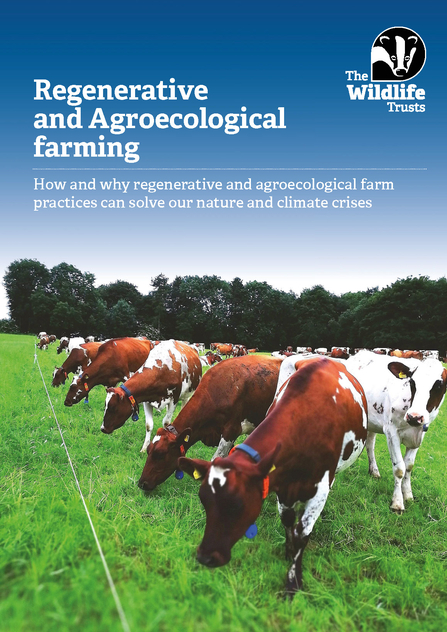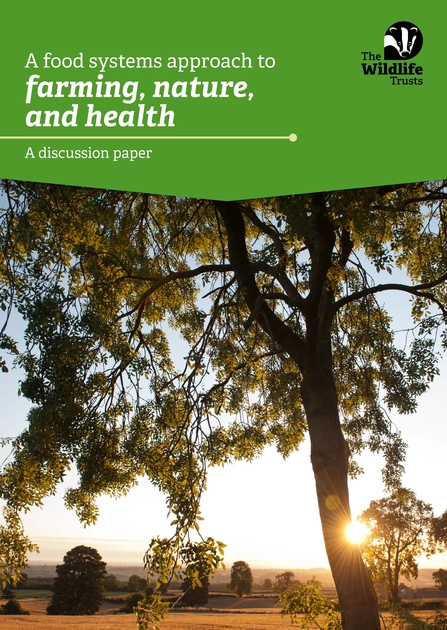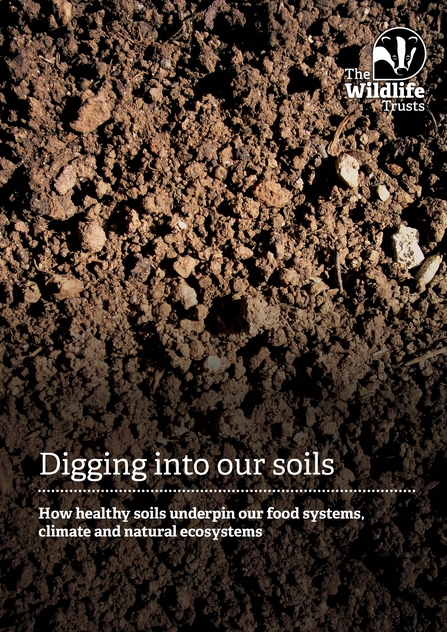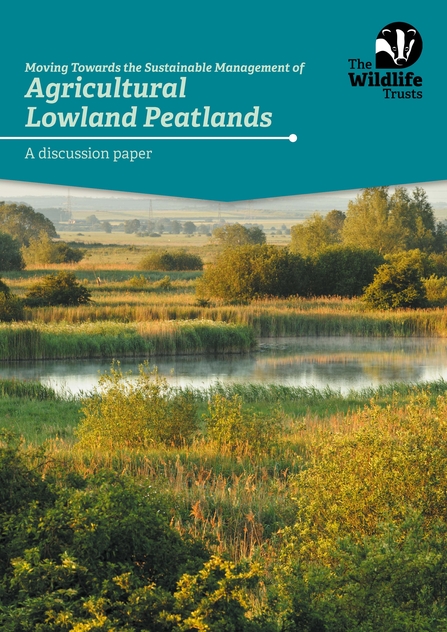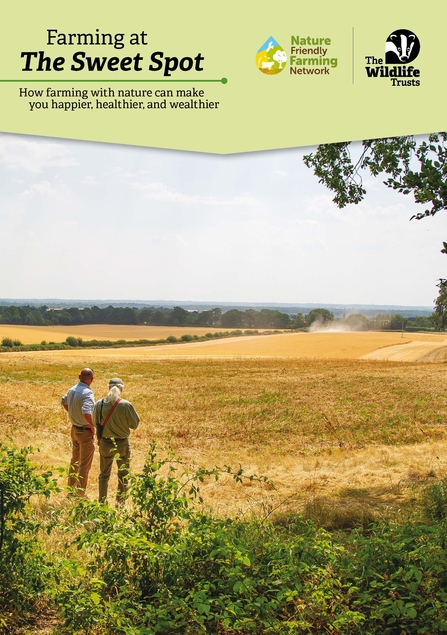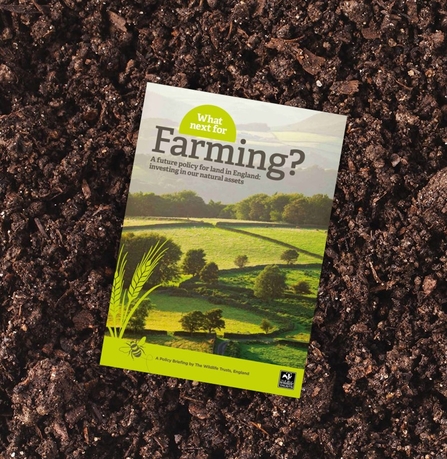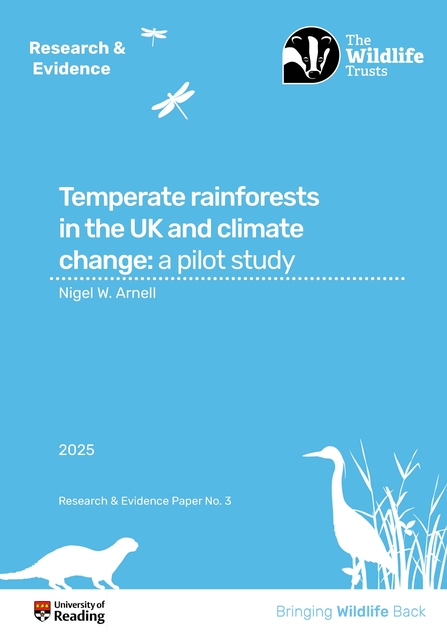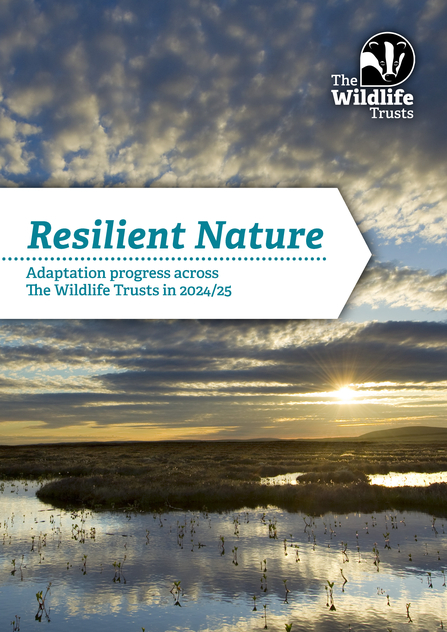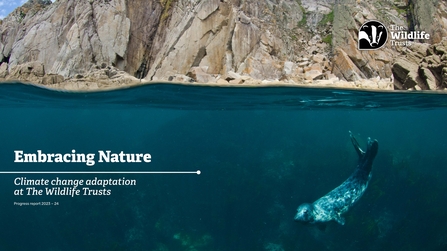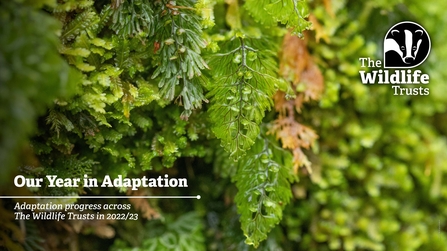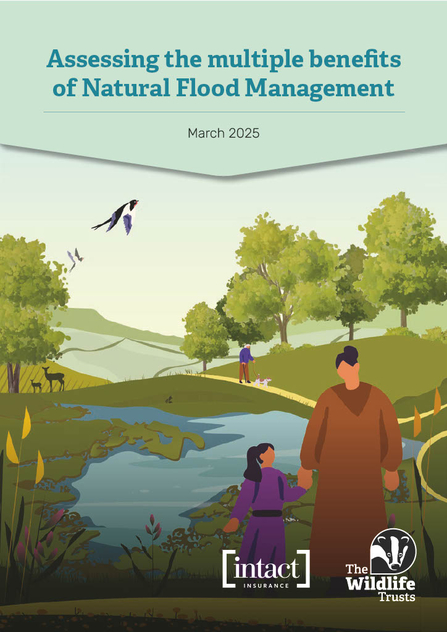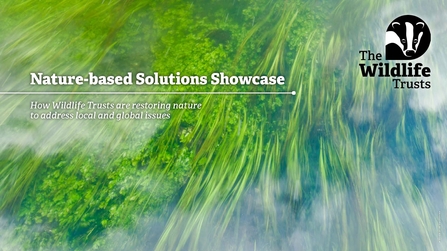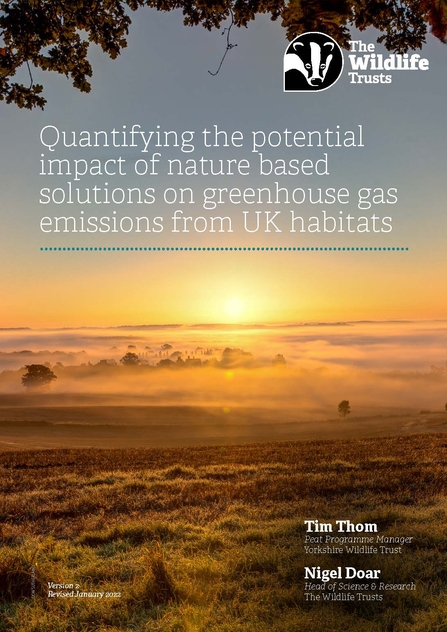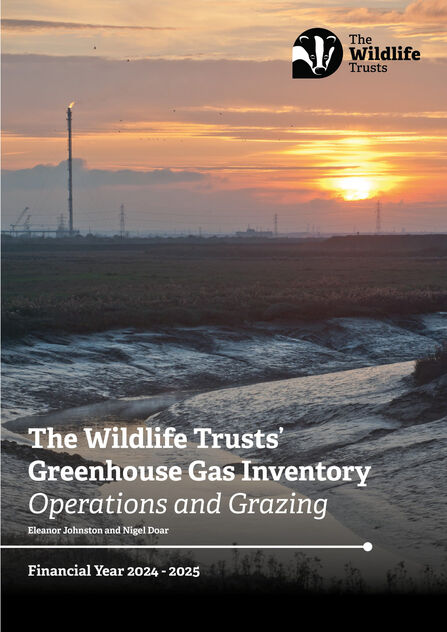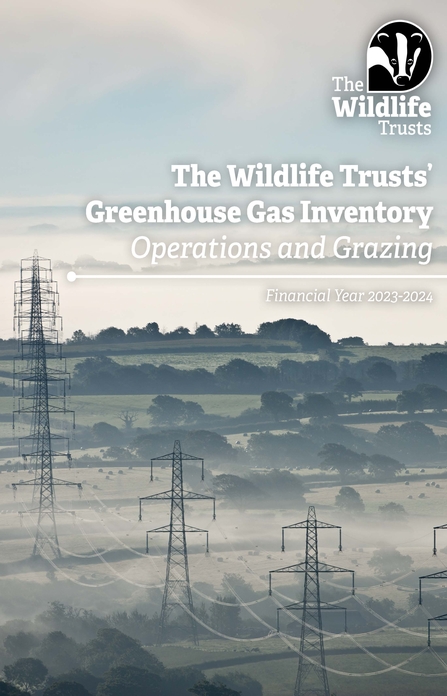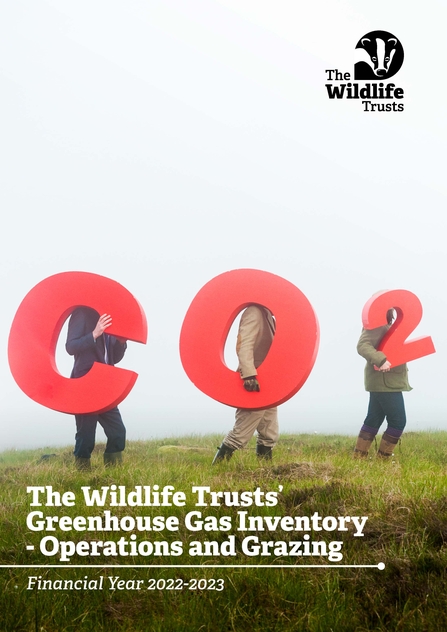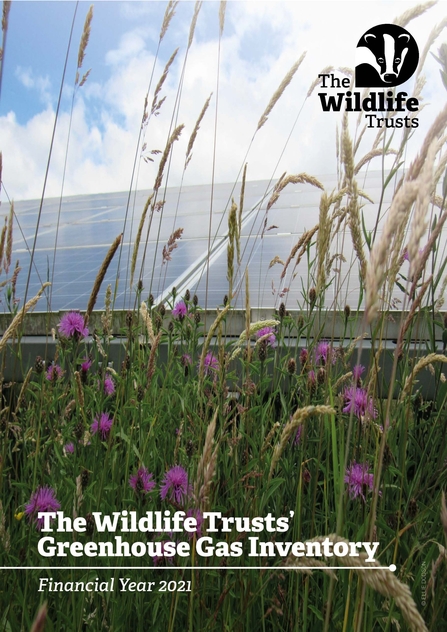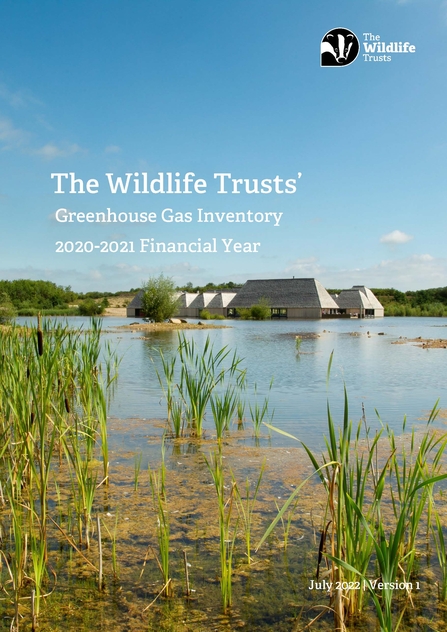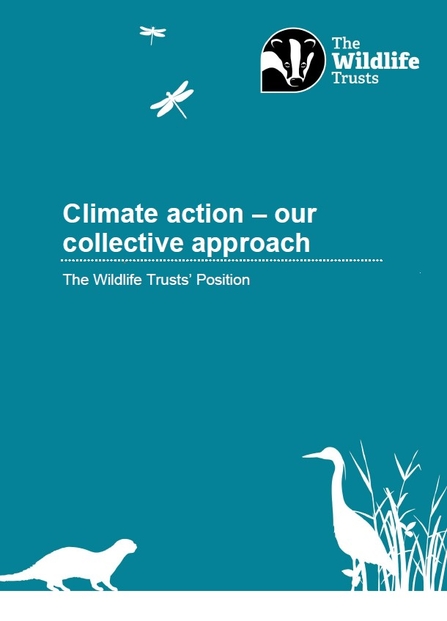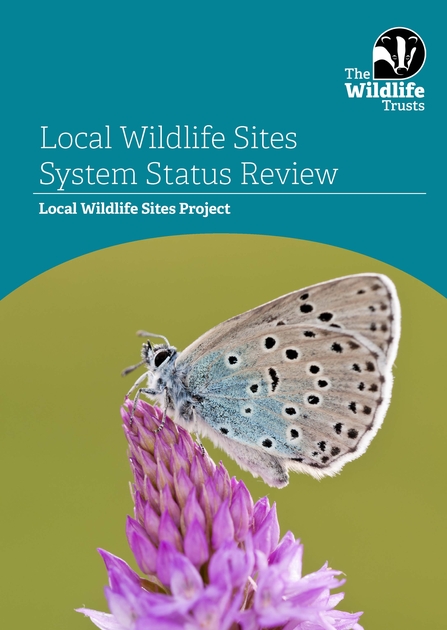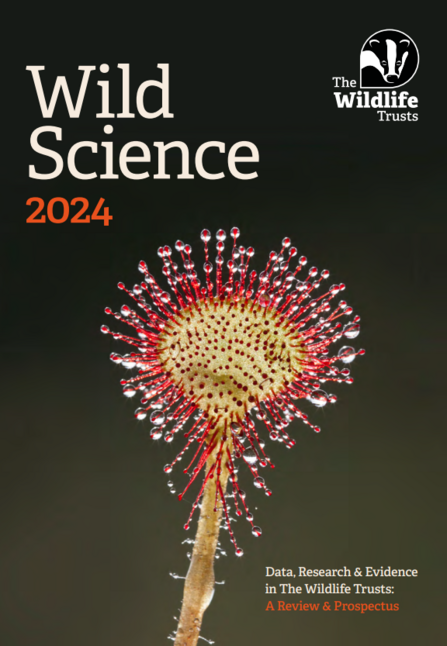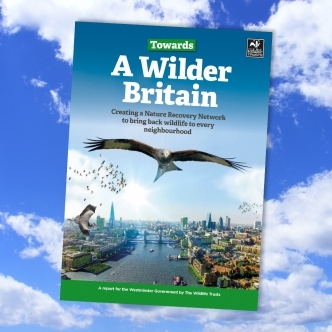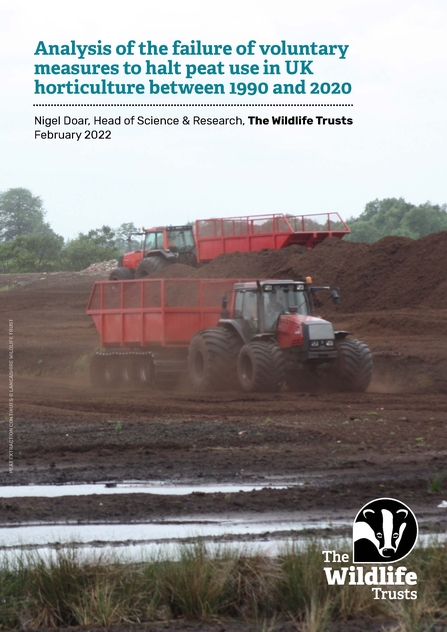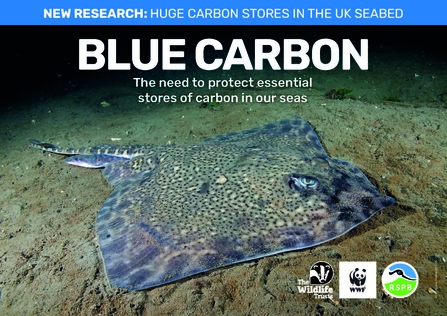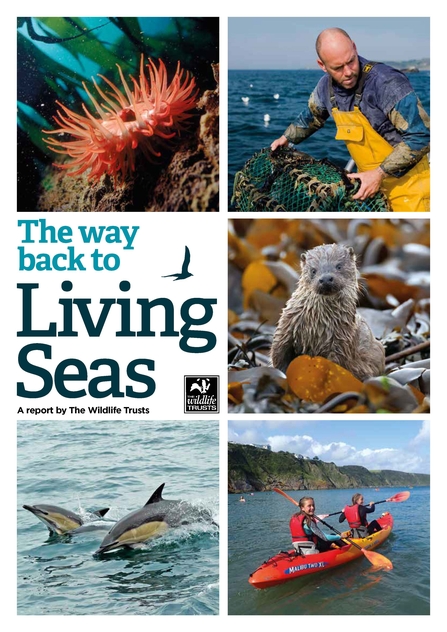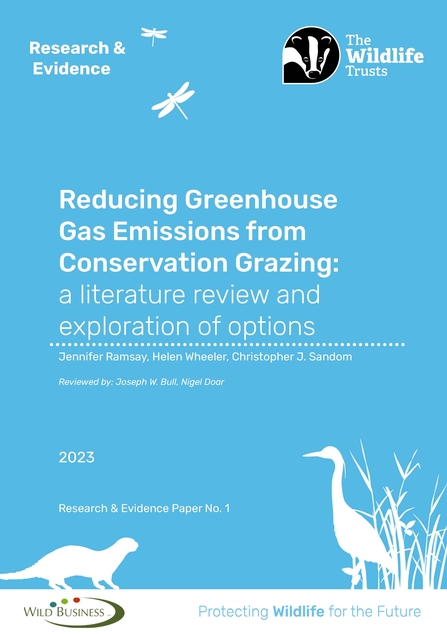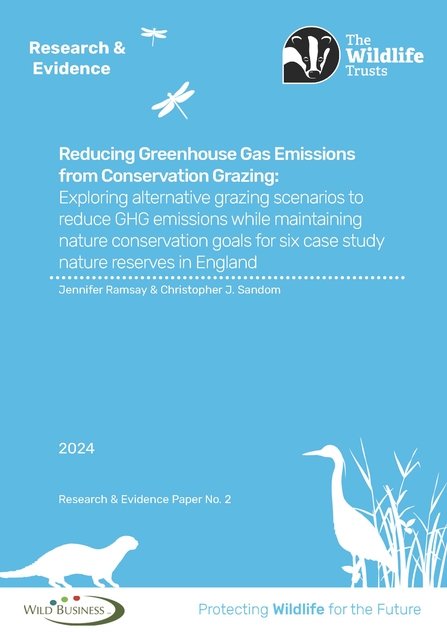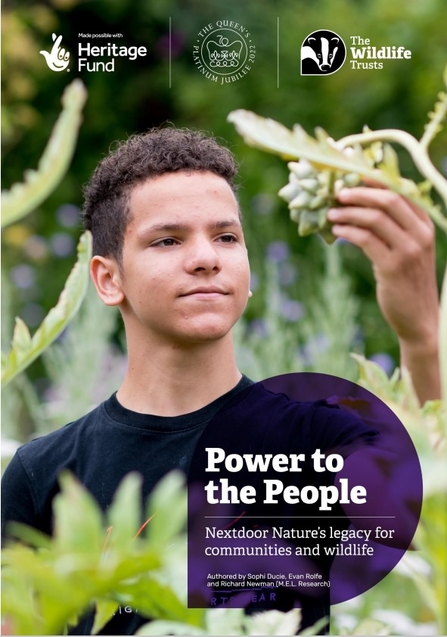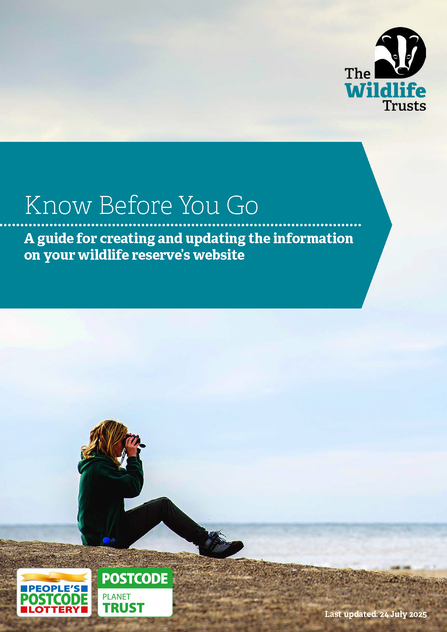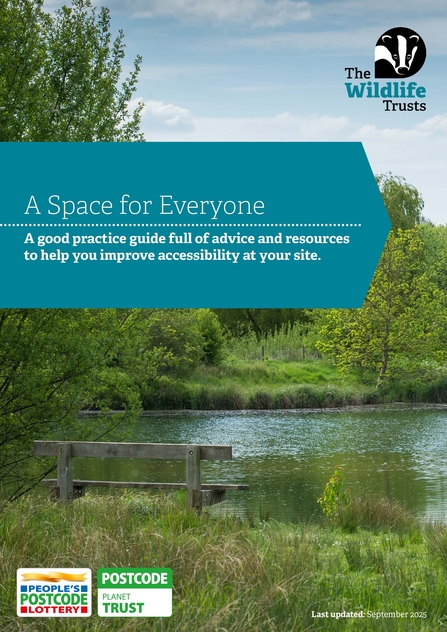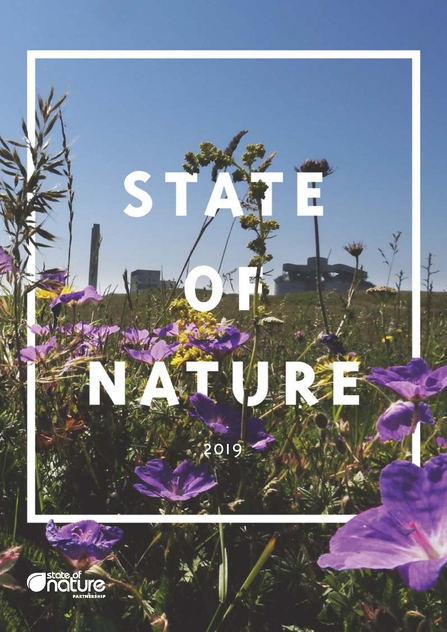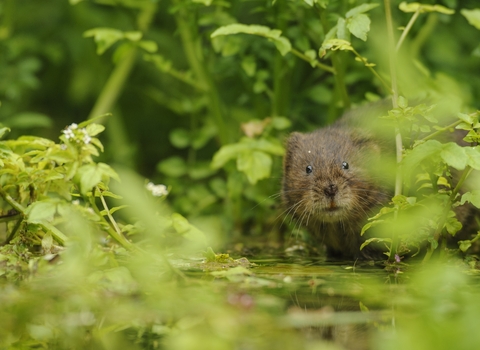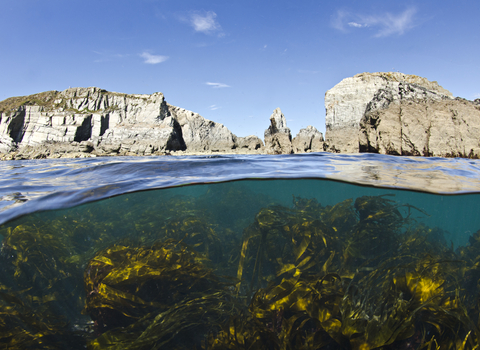Explore our publications
Browse a selection of our publications here, including our annual reports and accounts, independent and partnership publications, as well as policy and position statements.
Annual Impact Reports
This annual report gives an overview of our impact in the year 1 April 2023 - 31 March 2024, including key statistics, stories and highlights - from the area of land we manage and influence for wildlife, to measuring the impact of volunteering on peoples' mental health.
Annual Reports and Accounts
Planning and Development
The Wildlife Trusts' reports and discussion papers covering areas of planning and development, and its impact on nature.
Planning and Development: Nature isn't the problem. May 2025
Despite rhetoric from Ministers that pin the blame for slow development on bats and newts, new research shows that these protected species are rarely a factor in planning appeal decisions. This research and evidence reports finds that in 2024, bats and great crested newts were a factor in just 3.3% of planning appeal decisions.
Planning and Development: Nature isn't the problem full report
Housing Principles Briefing. November 2022
This briefing explores current issues and sets out The Wildlife Trusts’ principles for home-building which will actively contribute to reducing climate impacts, help nature to recover and tackle health inequalities.
Housing and Nature Report. August 2022
This independent report was commissioned to explore the economic reasons behind the housing crisis and research ways solutions for development to contribute to reducing the nature, climate, health and housing emergencies.
Planning: A new way forward. October 2021
Our planning system should contain the tools we need to tackle the challenges of the 21st century. This report explores how the planning system can help our health, nature and climate.
What's the Damage: Why HS2 will cost nature too much. January 2020
A Wildlife Trust report on why current plans for HS2 will cost nature too much, resulting in local extinctions and loss of valuable habitat.
Farming and Nature
The Wildlife Trusts' reports and discussion papers on farming and nature.
Quantifying the Environmental Risks from Pig & Poultry Production in the UK. August 2025
This independent report, commissioned by The Wildlife Trusts, has for the first time investigated the cumulative impact of the UK pig and poultry sector on the wider countryside, including the damaging effects of growing the vast feedstocks needed for these animals. The findings reveal the deep impacts of these increasingly intensive industries on water quality and pollution levels.
The Wildlife Trusts' Vision for the Future of Farming in England. June 2025
The Wildlife Trusts have launched our 25 Year Vision for Farming. This vision sets out a blueprint for delivering healthy diets, nature recovery and climate-resilient farm and food businesses long into the future.
Transformation of the food and farming system is more vital than ever as farmers are continuing to face a huge degree of uncertainty, battling the ever-increasing impacts of a changing climate and volatile markets.
Regenerative and Agroecological farming. June 2025
This report explores how and why regenerative and agroecological farm practices can solve our nature and climate crises.
A food systems approach to farming, nature and health. April 2025
Sustainable food production depends on the natural world. The health of natural systems underpins our ability to produce food, yet these systems are under threat, putting our food security at threat.
Here, we discuss 12 ways to tackle the food system to ensure nature and food production go hand in hand. These 12 ways fit into three areas: land, consumption, and fairness.
Digging into our soils: How healthy soils underpin our food systems, climate and natural ecosystems. April 2025
This briefing sets out what soils are and how healthy soils function, outlines the threats acting upon them, and explores the role they play in achieving sustainable food systems, mitigating and adapting to climate change, and the protection of natural environments.
Moving Towards the Sustainable Management of Agricultural Lowland Peatlands. February 2025
Despite covering only 10% of UK land area, peatlands are our largest terrestrial carbon store and are also vital habitats for highly specialised species.
This briefing outlines why further action is needed and summarises a vision for the future of lowland agricultural peatlands with four key recommendations to reverse the ongoing harms.
Farming at The Sweet Spot: How farming with nature can make you happier, healthier and wealthier. June 2023
This report demonstrates how moving to nature-friendly farming can be productive and financially robust for farm businesses across the sector. The evidence shows how putting nature at the forefront of decision-making can release farms from the vice grip of input dependency without undermining nature and the climate – a prerequisite for our long-term security.
An assessment of the financial resources needed for environmental land management in the UK. June 2023
Since the completion of Paying for Public Goods from Land Management in 2019, new environmental commitments and legally binding targets have been introduced. This report therefore updates the land management assumptions set out in the 2019 model and updates the cost drivers to assess the implication of the current economic conditions on financial resource needs.
Paying for public goods from land management. June 2019
This report for the RSPB, the National Trust and The Wildlife Trusts is designed to help to improve our understanding about how and how much land managers should be paid by the Government to meet environmental land management priorities across the UK.
What next for farming? May 2018
Read our recommendations for a future agriculture policy after the UK leaves the EU. Published in January 2018.
Nature and the climate crisis
These reports and discussion papers explore the climate crisis, adaptation and the role of nature in climate change mitigation.
Temperate rainforests in the UK and climate change: a pilot study. August 2025
This paper presents a pilot assessment of the potential effects of climate change on temperate rainforests in the UK. It uses a definition of the climatic suitability for temperate rainforests and a set of seven climate indicators relevant to their sustainability.
Let Nature Help: COP26 edition. December 2021
Climate action needs nature. Nature needs climate action. Neither will succeed if we don’t prepare for a changing world.
Climate Adaptation Reports
Resilient Nature. September 2025
The Wildlife Trusts' adaptation report for 2024/25 summarises some of the many adaptation actions undertaken by Wildlife Trusts over the past year.
Embracing Nature. August 2024
This is The Wildlife Trusts’ third annual report on adapting to climate change, following from our first report in 2022, Changing Nature. In keeping with reporting requirements under the UK Climate Change Act (2008) we assess how climate change is directly affecting our own charities — the federation of Wildlife Trusts.
Our Year in Adaptation. July 2023
This first annual update of Changing Nature brings together a range of actions that The Wildlife Trusts have undertaken over the past 12 months, set against the commitments in our five year plan. It also considers the impacts that extreme weather has had on our sites in the past year, whether there has been any change in our capacity to act, and key evidence and capacity gaps.
Changing Nature. June 2022
This is The Wildlife Trusts’ first report to set out an assessment of climate risk and actions on adapting to climate change. In keeping with reporting requirements under the Climate Change Act (2008) we assess how climate change is directly affecting our own charities — the federation of Wildlife Trusts.
Nature-based Solutions Reports
Assessing the multiple benefits of Natural Flood Management. March 2025
Natural Flood Management (NFM) is increasingly recognised as a valuable and cost-effective complement to traditional flood defences in the UK.
This research project, in partnership with Intact Insurance and The Wildlife Trusts assessed the full range of benefits from NFM schemes already implemented or in progress by local Wildlife Trusts, and brought together existing literature on the societal net benefits of NFM.
Nature-based Solutions Showcase. July 2023
We need a rapid scale up of nature-based solutions to make this happen and ensure nature can play a central and valued role in addressing social challenges including climate change. Here we show just one example across a range of Wildlife Trusts, representing just a small proportion of all the projects we are doing.
Quantifying the potential impact of nature-based solutions on greenhouse gas emissions from UK habitats. April 2022
This report was commissioned to give The Wildlife Trusts technical insight into the scientific evidence that is currently available on the relationship between habitat creation, restoration and management, and atmospheric greenhouse gas (GHG) levels.
The Wildlife Trusts' Greenhouse Gas Inventory Reports
The Wildlife Trusts' Greenhouse Gas Inventory: Financial Year 2024-25
On The Wildlife Trusts federation's journey to net zero, our priority is to cut GHG emissions right across the work we do, and free ourselves from fossil fuel use and dependencies. This annual report presents the GHG emissions from our operations in Financial Year (FY) 1 April 2024 to 31 March 2025.
Read the Greenhouse Gas Inventory for financial year 2024-25
The Wildlife Trusts' Greenhouse Gas Inventory: Financial Year 2023-24
On The Wildlife Trusts federation's journey to net zero, our priority is to cut GHG emissions right across the work we do, and free ourselves from fossil fuel use and dependencies. This annual report presents the GHG emissions from our operations in Financial Year (FY) 1 April 2023 to 31 March 2024.
Read the Greenhouse Gas Inventory for financial year 2023-24
The Wildlife Trusts' Greenhouse Gas Inventory: Financial Year 2022-23
On The Wildlife Trusts federation's journey to net zero, our priority is to cut greenhouse gas (GHG) emissions right across the work we do, and free ourselves from fossil fuel use and dependencies. This annual report presents the GHG emissions from our operations in Financial Year (FY) 1 April 2022 to 31 March 2023.
Read the Greenhouse Gas Inventory report for financial year 2022-23
The Wildlife Trusts' Greenhouse Gas Inventory: Financial Year 2021-22
In working together towards net zero by 2030 across The Wildlife Trusts, our major priority is to cut GHG emissions right across the work we do, and free ourselves from fossil fuel use and dependencies. This annual report presents the GHG emissions of The Wildlife Trusts in Financial Year (FY) 2021-22, covering the 46 individual Wildlife Trusts and the Royal Society of Wildlife Trusts.
Read the Greenhouse Gas Inventory report for financial year 2021-22
The Wildlife Trusts' Greenhouse Gas Inventory: Financial Year 2020-21
The Wildlife Trusts are taking an evidence-led approach to understand, reduce, and report our GHG emissions across our value chain, and to report against our net zero 2030 target. The Wildlife Trusts federation will work together towards a goal of net zero greenhouse gas emissions by 2030, as well as putting in place robust adaptation measures across all our work.
Read the Greenhouse Gas Inventory for financial year 2020-21
Climate Action: Our Collective Approach
The Wildlife Trusts' position on climate change, reflecting the views of all 46 Wildlife Trusts and the Royal Society of Wildlife Trusts.
Nature's recovery and conservation reports
These reports relate to the recovery of nature on land.
Local Wildlife Sites System Status Review. April 2025
The Wildlife Trusts and Natural England have begun a consultation process with Local Wildlife Site (LWS) Partnerships in England and Wales to understand the LWS data they hold and their thoughts around sharing that data. The information collected will assist in identifying the role of LWSs in achieving 30 by 30 and nature recovery and inform what is needed to promote long term sustainability in relation to collecting, managing and sharing LWS data.
Wild Science 2024. October 2024
An evidence-based assessment of the critical role nature plays in addressing the climate and nature crises. It highlights how scientific research, monitoring, and innovation are crucial to understanding the true value of nature for human well-being and developing solutions for nature's recovery.
The Rothschild List: 1915-2015. January 2016
In order to assess what has happened to the places on Rothschild’s List over the past century The Wildlife Trusts set out to collect as much information as we could using desktop research to measure the current state of the 284 Rothschild Reserves. Read our conclusions in the 2015 review.
The Nature Recovery Handbook. September 2020
The Wildlife Trusts are calling for the creation of national networks for nature’s recovery. These will need to be spatially planned so that action can be targeted to where it will be most effective to form an ecologically coherent, resilient network of sites that will enable nature to recover and thrive. The Handbook draws on the expertise from across The Wildlife Trusts movement in planning and implementing networks for nature.
Towards a Wilder Britain. June 2018
Read 'Towards a Wilder Britain' our proposals for a Nature Recovery Network of joined-up habitats to help wildlife and people to thrive.
Peatland reports
These reports relate to peat.
Analysis of the failure of voluntary measures to halt peat use in UK horticulture between 1990 and 2020. February 2022
This report reviews the failure of the voluntary approach to halting the use of peat in horticulture.
Securing a better future for the UK’s peatlands will require a step-change in ambition from Governments. Introducing a legislative ban on the use of peat in horticulture is one clear step that UK Governments can take to put nature into recovery, while helping to transform our peatlands from net emitters of CO2 to carbon sinks.
Marine reports
Explore our reports and discussion papers related to our marine environment
Blue Carbon Report. September 2024
The Blue Carbon Mapping Project, led by the Scottish Association for Marine Science (SAMS) on behalf of WWF, The Wildlife Trusts and the RSPB, provides a detailed estimate of the amount of carbon captured and stored in UK seas, including Marine Protected Areas (MPAs). The series of reports uses the best available data on coastal and marine habitats that capture and/or store carbon (known as ‘blue carbon’). It estimates that 244 million tonnes of organic carbon are stored in just the top 10 centimeters of seabed sediments and vegetated habitats, with over 98% of it stored in seabed sediments such as mud.
The Way Back to Living Seas. July 2018
This report sets out The Wildlife Trusts' proposals for a new UK Marine Strategy, challenging the government to bring back living seas.
The case for more Marine Conservation Zones. November 2018
In this 2016 report, The Wildlife Trusts set out their case for an interconnected network of Marine Conservation Zones. The report highlights the importance of protected marine areas, not only for the recovery of fragmented habitats, but for the longevity of our living seas.
Research and evidence papers
These research-based papers bring together evidence on a subject matter.
Reducing Greenhouse Gas Emissions from Conservation Grazing: a literature review and exploration of options
In this report, we examine the literature relating to greenhouse gas emissions and carbon dynamics in the context of livestock grazing. We review the evidence for a variety of possible measures to reduce GHG emissions from conservation grazing and compare them with the potential biodiversity and habitat impacts of these measures.
Read Research and Evidence Paper 1
Accompanying this paper are EPPI-Mapper files. These files allow you to interact with the reference material. You can access those below.
EPPI-Mapper files
- Interventions and Climate Processes: Evidence Clusters and Gaps
- Species and Breed: Evidence clusters and gaps
- Species, Breed and Climate Processes: Evidence clusters and gaps
- Supplements for methane reduction: Evidence clusters and gaps
Reducing Greenhouse Gas Emissions from Conservation Grazing: Exploring alternative grazing scenarios
This report presents an exploration of how conservation grazing regimes could be altered to reduce Greenhouse Gas (GHG) emissions while not compromising biodiversity conservation goals at six case study sites. This report has explicitly considered the GHG emissions from conservation grazing used to deliver specified biodiversity conservation goals.
Nature and well-being
Our nature and well-being reports explore the benefits of nature for people.
Nextdoor Nature 2022-2024. November 2024
An independent report from MEL Research that was commissioned to examine the impact and outcomes of the National Lottery Heritage Funded project, Nextdoor Nature. The project brought people and communities together to help nature flourish where they live and work.
Every Child Wild. November 2015
A Wildlife Trusts' report on why we believe every child has the right to be wild. With fewer than 10% of children playing in natural areas, we explore why time spent in nature is important, and what we're doing about it.
Nature and well-being: Volunteering. 2015-2017
From 2015-17 the School of Biological Sciences at the University of Essex carried out research on behalf of The Wildlife Trusts, to:
■ Study the mental well-being of volunteers on Wildlife Trust projects
The findings are particularly important for people who live with a mental health condition. The research showed that nature volunteering had the most significant impact on those with low levels of mental well-being at the start of the project.
An evaluation of the health and well-being impacts of volunteering for 12 weeks with Wildlife Trusts found:
- 60% reported becoming more physically active
- New volunteers trebled the number of days they were physically active
- 83% improved their mental well-being
A Natural Health Service. September 2019
A summary of research carried out by University of Essex and Leeds Beckett University for The Wildlife Trusts which demonstrates that for every £1 invested in Wildlife Trusts’ volunteering programmes, there is a £8.50 social return.
A Social Return on Investment. September 2019
Analysis of the health and well-being impacts of Wildlife Trust programmes
Equality, Diversity and Inclusion reports and guides
The Wildlife Trusts' Diversity Report 2025. January 2026
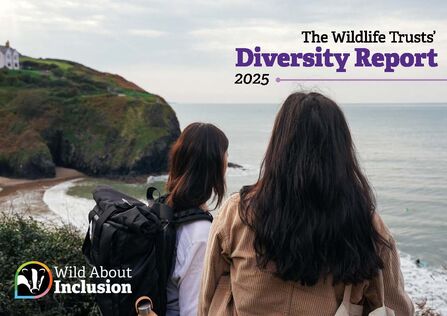
The Diversity Report is the Wildlife Trusts' annual review of the demographics of our current staff and Trustees. It's a clear and honest picture of who we are as a federation, and the work we're doing to become more inclusive.
Know Before You Go Guide. September 2025
This guide is for those who manage wildlife reserves. The aim is to give people the information they need before they visit your reserve. A good ‘Know Before You Go’ page will help people understand what the reserve is like and what to expect before they visit. For people with accessibility needs, the page will help them make an informed decision about whether the reserve is suitable for them to visit.
A Space for Everyone Guide. September 2025
This guide from The Wildlife Trusts is for landowners that want to make changes in green and blue spaces, so they are more accessible and feel safer. Green and blue spaces usually describe places that have water, grass or trees. Examples include nature reserves, walking trails, lakes, and rivers, and they are often open to the public and usually free to access.
It includes practical steps that you can take to make your space easier for people to visit and enjoy. You can also read case studies and follow links to other research and resources that show how other organisations have made their spaces more accessible.
Partnership Publications
The State of Nature Report
The 2019 State of Nature report was produced by a partnership of over 70 organisations involved in the recording, researching and conservation of nature in the UK and its Overseas Territories. It is the third report of its kind published, with the first having been published in 2013 and the second in 2016.
Read the 2019 report
Read the 2016 report
Read the 2013 report
Jordans Farm Partnership Impact Report
Our partnership with Jordans Cereals helps the farmers who grow their oats to farm in harmony with nature. Our impact report shows how Wildlife Trust advisors have been helping the farmers achieve this.
Read
The Nature and Wellbeing Act
In 2016 The Wildlife Trusts, along with the RSPB and partners, called for a Nature & Wellbeing Act, that would set the world's first legally binding targets for nature's recovery in a generation. Over 9,000 people contacted their MPs about the Act before Parliament was dissolved ahead of the 2015 General Election.
This document sets out the purpose of the act and its impacts on the country's health and economy. It includes examples of how we and our partners put the ideas of the Act into practice to make a difference today.
The Green Wildlife Guide for Boaters
Published in 2017 to advise boaters on how to get the best experience out of their wildlife encounters by acting responsibly and cautiously to minimize the risk of disturbance while keeping participants and their boats safe.

